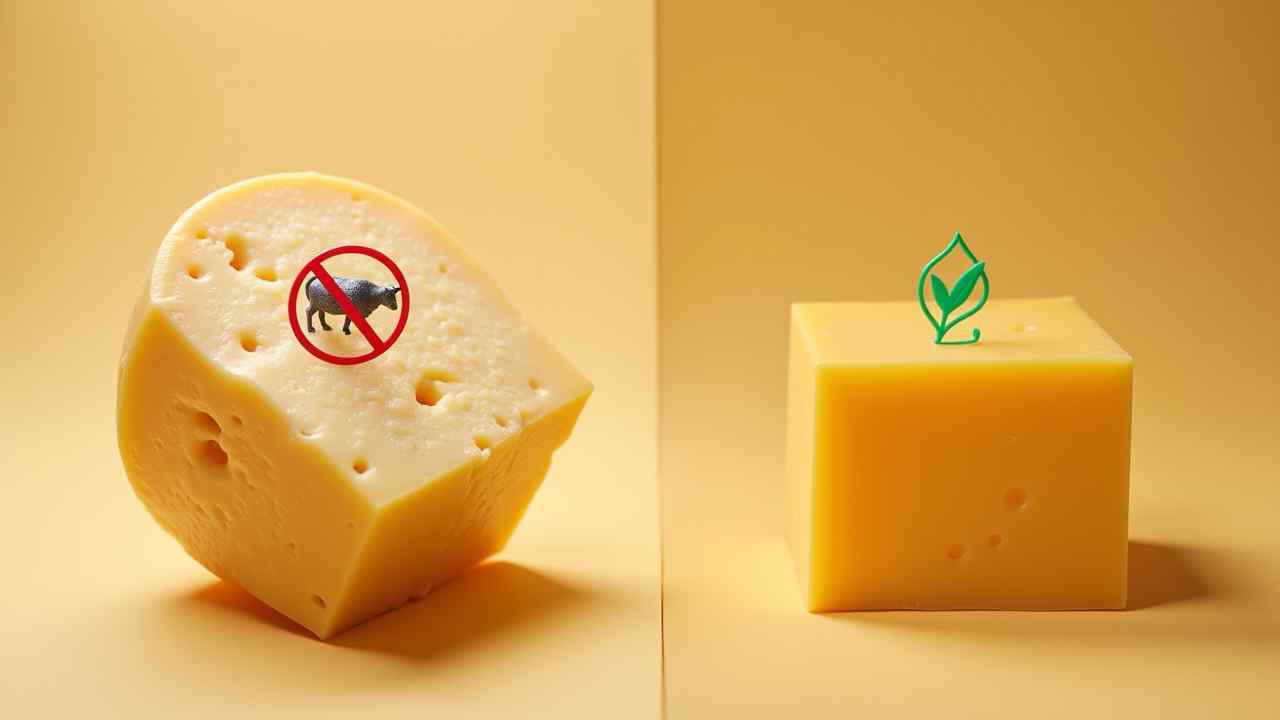
🧀 Is Cheese Vegetarian? The Surprising Truth About Rennet
🧀 Is Cheese Vegetarian? The Surprising Truth About Rennet 🧀
For many vegetarians, cheese is a delicious and important source of protein. It is made from milk, not meat, so it seems like a safe choice. This leads to a very common question: is cheese vegetarian?
The surprising answer is: mostly, but not always. While the main ingredient is milk, the process of making some cheeses involves a hidden, non-vegetarian ingredient. This ingredient is called rennet. Understanding rennet is the key to navigating the cheese aisle with confidence.
This guide will explain what rennet is. We will show you which cheeses to be cautious of. We will also give you simple tips for finding cheese that is truly vegetarian. Let's solve this cheesy mystery. ✅
🤔 What is Rennet and Why Does it Matter?
Rennet is an essential ingredient in most cheesemaking. It is a complex of enzymes. Its job is to coagulate the milk. This means it separates the solid milk curds from the liquid whey. This is the first step in forming the solid mass that will become cheese.
What is the "Problem": Animal Rennet?
The traditional and original source of rennet is the stomach lining of a young, unweaned calf. Lambs and goats can also be a source. Because this enzyme is harvested from a slaughtered animal, any cheese made with animal rennet is not vegetarian.
This is the central issue in the "is cheese vegetarian" debate. The cheese itself is meat-free. However, the process used to make it involves a product of animal slaughter. For this reason, many traditional cheeses are off-limits for strict vegetarians.
🌱 What Are the Vegetarian Alternatives to Animal Rennet?
The good news is that most cheese today is made with vegetarian-friendly rennet. Modern technology has provided several excellent alternatives. These are used in the vast majority of cheeses produced worldwide.
- Vegetable Rennet: These are enzymes derived from plants. Cardoon thistle is a classic example used in some European cheeses.
- Microbial Rennet: This is a very common alternative. The rennet enzymes are produced by a specific type of mold or fungus.
- Genetically Engineered Rennet (FPC): This is the most common type used in the United States. No animal is harmed in its production.
🚫 Which Common Cheeses are Often NOT Vegetarian?
While most cheeses are now vegetarian, some famous, traditional cheeses are not. This is often due to strict naming laws. To be called by its protected name, the cheese must be made in the traditional way. This often includes using animal rennet.
Be cautious with these classic European cheeses:
- Parmigiano-Reggiano: This is the most famous example. It is required by law to be made with calf rennet.
- Grana Padano
- Pecorino Romano
- Gorgonzola
- Traditional Gruyère
If you are buying an imported cheese with a protected name (PDO or DOC), there is a good chance it uses animal rennet.
⭐ How Can You Find and Identify Vegetarian Cheese?
Finding vegetarian cheese is very easy if you know what to look for. Here are a few simple tips for your next shopping trip.
1. Read the Ingredient List: The label is your best friend. Look for the word "rennet" or "enzymes." If it says "animal rennet," it is not vegetarian. If it says "vegetable rennet" or "microbial rennet," it is safe. If it just says "enzymes," it is almost always a vegetarian source.
2. Look for a "Vegetarian" Symbol: Many brands now make it easy. They will print a "V" symbol or the words "Suitable for Vegetarians" on the package.
3. Choose Fresh, Soft Cheeses: Many soft cheeses like cream cheese, cottage cheese, and paneer are made without any rennet at all. In Türkiye, many common cheeses like "beyaz peynir" (white cheese) are also made with non-animal rennet. 🧀